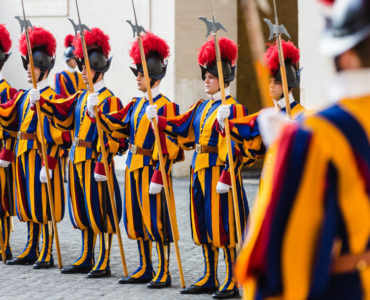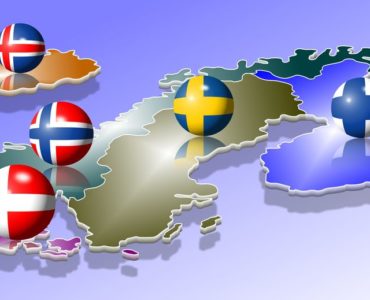
What if your company assisted customers in more than 85 languages but suddenly you realise that 350 million people speak a language you had ignored? It could happen to you as well if you are overlooking Hinglish. Because believe it or not, India does not have one ‘universal’ language. It has more than 8 major languages, but only 41% of the population consider the largest, Hindi, their first language. So for people to talk to one another, a compromise or a hybrid is needed. And that is where Hinglish comes in. But what is Hinglish? It is a mix of Indian languages (including Hindi) with a sprinkling of English.
WHY HINGLISH?
The Indian population is surprisingly mobile, the nation is going through both the industrial and information revolutions at the same time. Families migrate vast distances to urban areas for jobs, lifestyle and the perceived benefits of modern infrastructure. But with this movement comes challenges.

Since there are so many different Indian languages, it is common that two people do not speak the same one. That is why the use of a mix of languages (including English) is practical. English is often the only language in which two people who speak different Indian languages mutually understand a word for something.
Increasingly, using Hinglish is not only out of necessity, but also a proud demonstration that you are both modern (English-speaking) and locally-grounded (Indian language-speaking).
Whatever the background, the defining characteristic of Hinglish is that speakers naturally switch between two or more different languages (an Indian language, predominantly Hindi, and English) merging them into one.
A HISTORY OF HINGLISH
Hinglish is not a new phenomenon. The British rule or raj in India was central to the genesis of Hinglish. Without Hinglish, there would have been no trading and no spices! Hard to imagine a world without a Chicken Balti!
Thankfully the British quickly picked up on key Hindi (and other Indian language) words and phrases and the locals likewise learned English phrases.
EDUCATION
Since the British left over 50 years ago, English has, cemented its place more firmly as unifying point within the unofficial-official language of Hinglish.
Today’s most aspirational Indian parents send their children to schools where all lessons are taught in English. But ironically, although officially equipped for ‘English’, the students actually emerge speaking a language that is not really Hindi or English, but between the two. And that is how Hinglish grows stronger with each generation!
BOLLYWOOD

Bollywood has taken up the trend and played a vital role in the emergence of Hinglish. For example, popular Bollywood songs such as “My Mind Blowing Mahiya” are sung in fluent Hinglish. And many mainstream films contain both actual titles and spoken dialogue in Hinglish: “Love Aaj Kal (Or Love Today Tomorrow)” and “Badmaash Company (A Company of Dishonest Undisciplined Men)” both successfully use the Hinglish language in their actual titles and exploit the growing trend towards a multi-faceted, interchangeable language base.
BRANDING AND GLOBAL ADAPTION
In the last six years, digital advertising spend in India has increased by 500%!
Hinglish is now the broadcast language of choice for advertising in India. If you’re looking to export a product to the nation, Hinglish is the way to go.
In broadcasting, India’s MTV often broadcasts Hinglish voice over to engage with as many speakers as possible in just one language, and Pepsi are well known for their Hinglish Slogan – “Yeh Dil Mange More” (“Our hearts want more”)
And as a sign of global adaption, even Amazon’s Alexa now understands Hinglish commands, and – even more astounding – Alexa now responds in Hinglish. Clearly the language has arrived!
HINGLISH IN ENGLISH
It may surprise you how many Hinglish phrases have already made their way into the English language!

Bungalow– an Indian word adopted by the English.
Cash – a very English word for money? Actually, no! Cash originates from the Tamil word “kāsu” – which literally means “coin”.
Shampoo– this word also originates from Hindi – from the word “chumpee” meaning “massage”.
Thug- a “bandit”
Pyjamas – “pyjamas”
Pukka – which in English means “good” but in Hindi means “solid”
Whether we realise it or not- we have already adopted Hinglish into English! Observed this way, it could be said that Hinglish isn’t just used by Indians – but that in a minor way it is actually widely spoken throughout the English language!
A LIVING LANGUAGE
Although originally integrating English and Hindi words into the same sentence, as a living language, Hinglish has now taken further steps of evolution. Often one may find Hinglish speakers pairing words which fail to make sense in English, or are thought by the purist English speaker to convey a broken message, but in the “new” language of Hinglish, supposedly English words have come to mean new things (in Hinglish):
“First Class”-This does not actually refer to a premium ticket on a train but actually means “very well” – as in “How are you?” “First class” (meaning “I am very well, thank you”).
“Ji” – a suffix which is added to phrase to indicate a sentiment of respect. So rather than simply reply “OK” in response to a question, one adds on the suffix, “ji” – as in “OK ji”. It is a mark of respect for strangers or elders or betters.
Evolutionary, new uses of English like this – which would be relatively incomprehensible to the traditional or old-fashioned English speaker – are prevalent throughout the Indian subcontinent.
A LASTING PHENOMENON
Hinglish has not only been around for a while, but it is also one of (if not the) most exciting, evolving and growing languages in the world. Not only enabling different people to communicate, but also moving with their geographical and linguistic adaptations. Regardless of when or how the Hinglish hybrid language came to be, how it changes, or where it is used – as a ‘modern yet localised way of speaking which is also available to the masses’, it is well and truly here to stay!
The article is written by Simon Luckhurst, MD of Voice Talent Online. Voice Talent Online is a voice over agency, video translation and subtitling company in the United Kingdom that was founded 16 years ago.
Please also visit our website www.voicetalentonline.com and follow us on twitter, LinkedIn and Facebook.






[…] Hindi & English are popular languages, Hinglish is emerging rapidly with 350 million+ speakers versus only 125 million+ English speakers. This shift in language is primarily because users find […]
“So for people to talk to one another, a compromise or a hybrid is needed. And that is where Hinglish comes in”
Nah they really could have Hindi as a national language, they just don’t want to. Thanks to mental colonialism.
Look at China, there are so many languages in Southern China but they still learn Mandarin in school to communicate with the rest of their fellow citizens. You don’t see them speaking Chinglish with each other. Because Thank God they we’re never colonised by the British!!
[…] Hindi & English are popular languages, Hinglish is emerging rapidly with 350 million+ speakers versus only 125 million+ English speakers. This shift in language is primarily because users find […]